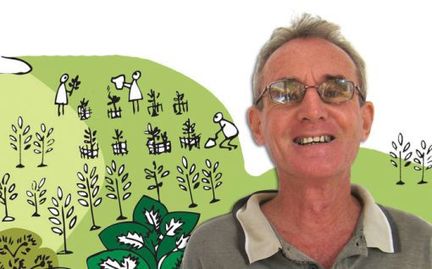Partnership with Auroville Forest :
The indigenous forest of the Auroville bioregion is called Tropical Dry Evergreen Forest (TDEF). It provides a rare biological richness due to its high species abundance. In 1968 when the township was founded it was a barren land. A variety of restoration methods have been applied since then, like soil conservation, water re bunding, and check dam building for rainwater catchment and the planting of pioneer and indigenous species. The restoration of the TDEF in Auroville now covers some 2000 acres. Including all the herbaceous species that grow in ecological niches within this forest type, the number of species approaches 1000. It is recorded that out of this more than 600 species are used for mankind, either medicinally, culturally or in religious rituals.
The Forest group has planted more than 3 million trees making Auroville the largest living repository of these species in the bio-region. As the forests have grown and native flora have returned, fauna has already returned to the area. The number of bird species has increased from approximately 30 to over 90. Species of butterflies, moths, and other insects have taken advantage of the increased diversity of plant food sources, and their diversity has increased also. Many species of reptile are present, including monitor lizards, chameleons, starbacked turtles, and the star tortoises. Up to 19 species of snake are now considered common, including the indian spectacled cobra and Russell’s viper. Mammals whose populations have increased include the mongoose, black-naped hare, and civet cat.
BBG South supports the work of the Auroville Bio Region in Nadikuppam & Pichandikullam forests and has donated funds to create a BBG Forest.


